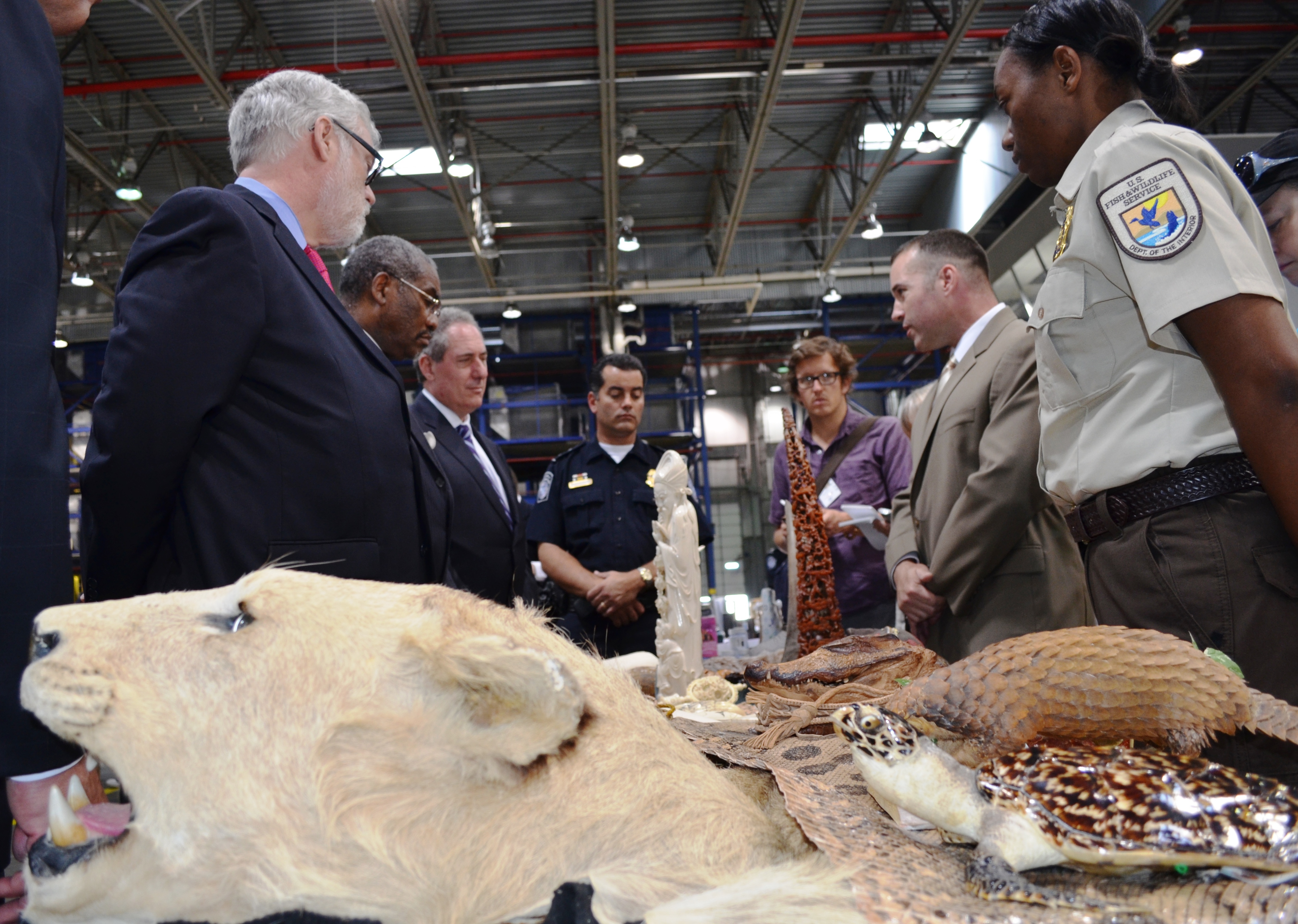 New York, NY – U.S. Trade Representative Michael Froman and Rep. Gregory Meeks (NY-5) today toured facilities at John F. Kennedy International Airport that serve to keep trade safe and help combat illegal trafficking in wildlife. At the event, Ambassador Froman and Congressman Meeks emphasized the benefits of President Obama’s trade agenda and highlighted the role that JFK International Airport plays in exporting Made-in-America goods while supporting high quality, local jobs.
New York, NY – U.S. Trade Representative Michael Froman and Rep. Gregory Meeks (NY-5) today toured facilities at John F. Kennedy International Airport that serve to keep trade safe and help combat illegal trafficking in wildlife. At the event, Ambassador Froman and Congressman Meeks emphasized the benefits of President Obama’s trade agenda and highlighted the role that JFK International Airport plays in exporting Made-in-America goods while supporting high quality, local jobs.
“President Obama’s trade agenda will unlock opportunity by boosting Made-in-America exports to the world, supporting jobs, growing our economy, and strengthening the American Middle Class,” said Ambassador Froman. “Major export hubs like JFK International Airport make an invaluable contribution to the United States economy while also working to help keep trade safe. Today we got a first-hand look at the work officials at JFK are doing to bolster the fight against international illegal trafficking in wildlife, which is a priority in two of the largest trade agreements we are negotiating and part of the Obama Administration’s broader strategy to combat wildlife trafficking.”
“I greatly appreciate Ambassador Froman taking time out of his demanding schedule for a tour of the John F. Kennedy International Airport, and a roundtable at York College,” said Representative Meeks. “Ambassador Froman was able to see first-hand the efforts at the airport to combat illegal wildlife trafficking and intercept the pirating of intellectual property. The tour highlighted JFK Airport as a critical link between the increased trade activity that USTR pushes for and the security and commercial interests of our nation.”
A fact sheet concerning trade, illegal wildlife trafficking, and national security is available here.
For information about how trade effects the lives of everyday American businesses, follow us on twitter @USTradeRep, and U.S. Trade Representative Froman @MikeFroman.







